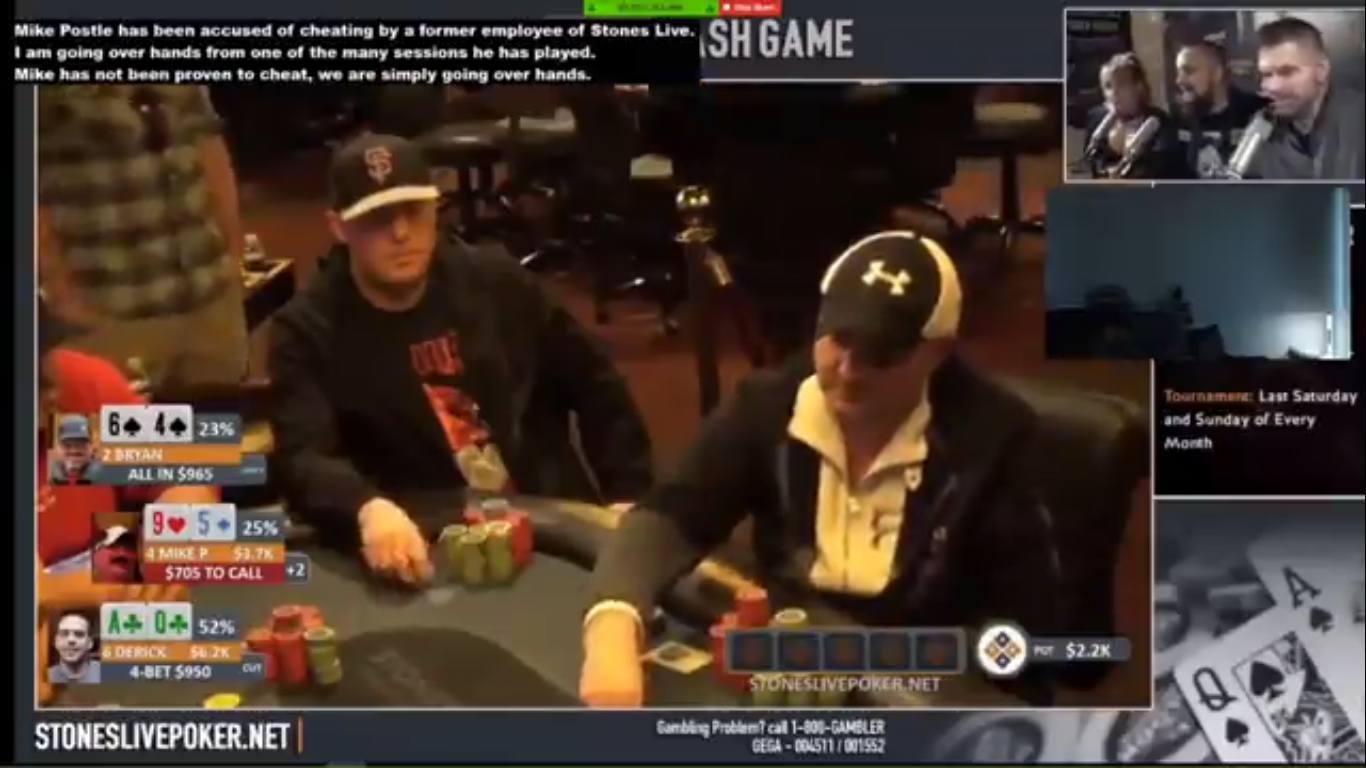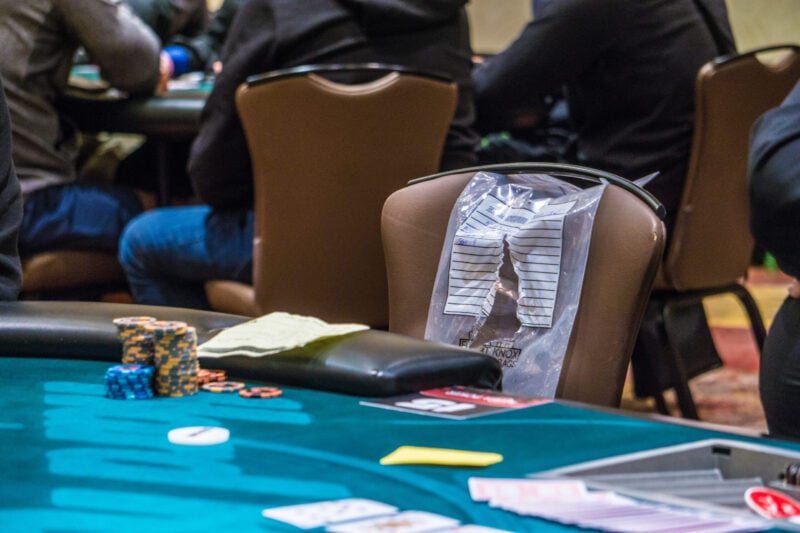Mike Postle filed a motion earlier this week to have a civil suit dropped. The alleged poker cheater’s lawyer claims there isn’t enough evidence to take the case to trial. But for this edition of Flashback Friday, we’re going to show you a suspicious hand he played at Stones Gambling Hall that may serve as one small, but potentially damaging, piece of evidence.

We need to make this very clear: Mike Postle is innocent until proven otherwise in a civil court. That said, many poker players have conducted their own investigations into Postle’s play, and most have come to the conclusion he is guilty. But he deserves his day in court and an opportunity to present his evidence — evidence that those who have already presumed his guilt aren’t privy to at this point.
What’s This All About?
If you didn’t pay attention to poker media back in October, you may be wondering what in the heck we’re even talking about. Postle is a poker pro from Northern California who regularly competed on the “Stones Live” streams at Stones Gambling Hall.
In late September, Veronica Brill (@Angry_Polak) accused Postle of cheating during Stones Live cash games. She called for a third-party to investigate her claims. Brill argued that Postle’s win rate was nearly impossible and that he always seemed to be making the correct decisions on the river. That led poker players such as Joe Ingram to investigate the accusations. His conclusion? Postle is either some sort of poker god or was using an electronic device to gain access to his opponent’s hole cards.
Mac VerStandig, a poker lawyer, is representing 25 plaintiffs in a $10 million civil suit against Postle. Postle’s attorney, William Portanova, filed a motion this week to have the case dismissed. He argues there isn’t sufficient evidence against his client to proceed with the case. But this video, courtesy of Doug Polk’s now retired YouTube channel, brings that claim into question.
Did Postle Have an ‘Oh S**T’ Moment?
The above hand is, by itself, proof of nothing other than that Postle played one hand poorly, based on sound poker strategy. There are hundreds of other hands out there in which Postle makes questionable decisions to win a big pot. You can watch those over at Joe Ingram’s YouTube channel. But this hand sticks out because of how Postle reacted, and it could serve as a damaging piece of evidence in court.
The hand in question begins with Postle raising to $60 in early position with a garbage hand (9-5 off-suit). A player named Bryan then three-bets to $260 with another junk hand (6-4 suited). That odd play was followed up by Derrick, who four-bet to $965 with a strong hand (A-Q suited), which was enough to put Bryan all in.
Postle and Bryan both made the call with their mediocre hands, and saw a flop of J-9-3, completely missing Bryan and Derrick. Postle, with middle pair, instantly jammed all-in for over $3,000. That risky move, shoving with middle pair into a pre-flop four-bettor, forced a fold.
The play in itself was strange — risking so much on such a terrible pre-flop hand, and then jamming with only middle pair. Why was he so confident, given the aggressive action before the flop, that his pair of nines was good? We may never know, but the hand gets even more suspicious after that when Postle potentially blew his cover.
With Postle and Bryan now playing for the main pot, the players kept their cards face down even though Bryan was already all-in and all betting had concluded.
“I can’t lose with this hand,” Postle announces, somehow knowing he’s good.
The turn was a 7, giving Bryan a gut-shot straight draw to stay alive.
“Oh, s**t,” Postle immediately mumbles, as if he somehow knew his opponent now had a draw.
But, if he wasn’t cheating, how did he know the 7 gave Bryan a straight draw? After all, he still hadn’t seen Bryan’s hole cards. Things that make you go hmmmm.
Maybe he really is a poker god.


